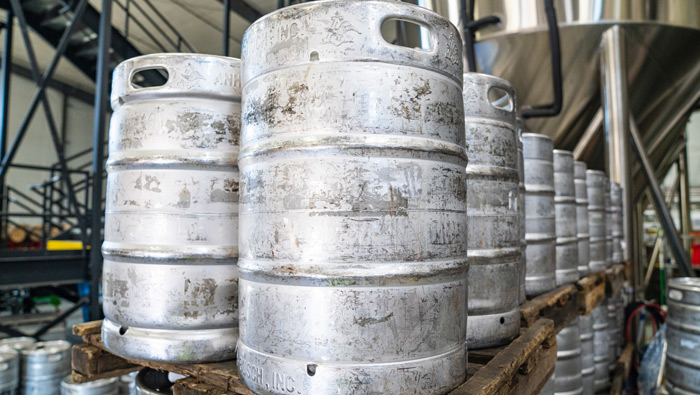By Charles Breen, EAS Independent Advisor for Food Safety
The popularity of new breweries, wineries and craft distilleries has created a community of devoted followers. Many producers do not realize one crucial thing—in addition to the Treasury Department’s Alcohol and Tobacco Tax and Trade Bureau (TTP), FDA also has jurisdiction. TTB has primary jurisdiction over most alcoholic beverages, but FDA maintains significant authority over some products, including wine or hard cider under 7% alcohol by volume, beer made without malted barley and/or hops, hard seltzers made from fermented sugar, and kombucha. In FDA’s eye, alcoholic beverages are considered food, and while exempt from preventive control requirements, they must comply with Good Manufacturing Practice regulations, GMPs. In the world of food, GMPs are the foundation for compliance with the Food Safety Modernization Act (FSMA).
The FDA Food Safety Modernization Act (FSMA) has completely transformed the nation’s food safety system into one based on prevention of foodborne illnesses by requiring place measures that are known to effectively prevent contamination. As any responsible grower, manufacturer, packer and transporter knows, keeping food safe to eat is paramount, no matter where it is produced, whether conventional or organic, whether the operation is small, medium or large, or whether it’s produce or processed. Compliance with Good Manufacturing Practices is critical to a producer’s success.
FSMA has seven (7) final rules:
- Current Good Manufacturing Practice, Hazard Analysis, and Risk-Based Preventive Controls for Human Food
- Current Good Manufacturing Practice, Hazard Analysis, and Risk-Based Preventive Controls for Animal Food
- Standards for the Growing, Harvesting, Packing, and Holding of Produce for Human Consumption(The Produce Rule)
- Food Supplier Verification Programs (FSVP) for Importers of Food for Humans and Animals
- Sanitary Transportation of Human and Animal Food
- Mitigation Strategies to Protect Food Against Intentional Adulteration (Food Defense)
- Accredited Third-Party Certification
and two (2) proposed rules to date:
Beginning with the publication of revised the GMPs and Preventive Control for Human Food rule in 2011, FDA has renewed its attention on alcohol beverages. This means manufacturers of many types of alcohol beverages must comply with not only TTB requirements but all of the regulatory requirements for general food found in the GMP regulations.
A significant requirement is GMP training for all employees as appropriate to their duties. From managers to line staff, no matter the job and no matter the spoken language – everyone must understand and be able to accomplish those requirements that apply to their role in producing food. In FDA’s view, without this training, education and related experience, an employee is not qualified to act in their role or perform assigned duties.
Because the food industry, including those who produce alcohol beverages is so varied, a one size approach to does not fit all. The most important goal for FDA is safe food, and the agency expects training programs to contribute to its accomplishment — that training advances knowledge in the food industry to meet safe food requirements. Individuals must receive training in the principles of food hygiene and food safety, including the importance of employee health and hygiene as appropriate to the food, the facility and the individual’s assigned duties.
We’ll talk about all this and more at the June 9, 2021 complimentary webinar on Distilling FSMA. I’ll be presenting along with a food and drug attorney from Lehrman Beverage Law, John Messinger. You may register on the EAS website here.
Those looking for FSMA compliance training need look no further than EAS. Many EAS Independent Consultants are Lead Instructors and we offer FDA recognized training programs as part of our FSMA educational curriculum.
EAS Consulting Group is a one-stop shop when it comes to education, assessing compliance with FSMA, creating or updating SOPs to bring processes into compliance with FSMA and more. Our FSMA team takes great pride in the breadth and depth of services we offer.
We look forward to seeing you on June 9, 2021 and the opportunity to assist with your FSMA needs in the future.
Implementing a robust training program as part of your company’s FSMA compliance is a must and EAS Consulting Group offers many tools to help you get there.
Posted in Foods, Issue of the Month.
